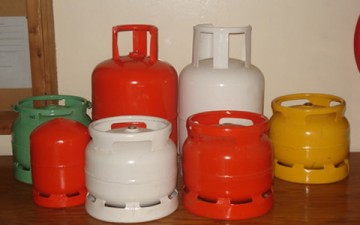The scarcity of Liquefied Petroleum Gas (cooking gas) has worsened in Lagos and Ogun states as a result of the lack of supply from the Nigerian LNG Limited, the major supplier of the product in the country.
 The Nigerian Maritime Administration and Safety Agency had since June 21 barred NLNG cargoes from entering or leaving the loading bay at the Bonny terminal in the Niger Delta region over non-payment of $158m levies.
The Nigerian Maritime Administration and Safety Agency had since June 21 barred NLNG cargoes from entering or leaving the loading bay at the Bonny terminal in the Niger Delta region over non-payment of $158m levies.
This has affected cooking gas supply as NLNG vessels cannot discharge in Lagos as a result of the blockade.
As a result of the crisis, LPG consumers are now being forced to bear the brunt with a 12-kilogramme cylinder of gas, which is normally sold between N2,800 and N3,000, now selling for N3,500 at LPG plants, and between N4,000 and N4,500 at retail shops.
The PUNCH had on July 3 reported that the price of cooking gas had gone up by 16.6 per cent from about N3,000 to N3,300 at plants, and N3,500 at retail shops.
Many gas plants, which still had the product in stock as at the time of the July 3 report, had resorted to rationing, but the situation has now gone worse with most LPG plants out of stock.
One of the plants located at Magodo area of Lagos, which sold a 12kg cylinder of gas for N3,200 on Monday, however, sold the same quantity for N3,500 on Tuesday amid high demand from customers, who besieged the facility in order to fill their cylinders.
The National President, Liquefied Petroleum Gas Retailers Association of Nigeria, Mr. Michael Umudu, who spoke with newsmen on Tuesday, lamented the development.
He recalled that though there were speculations last week that scarcity of the product was imminent, he said the situation had escalated beyond imagination due to the unavailability of the product in many LPG plants.
Umudu warned that the situation might worsen if the NIMASA/NLNG rift was not quickly resolved.
“The situation will be worse if nothing is done in the next two days,” he said, adding that majority of retailers had already run out of the product.




